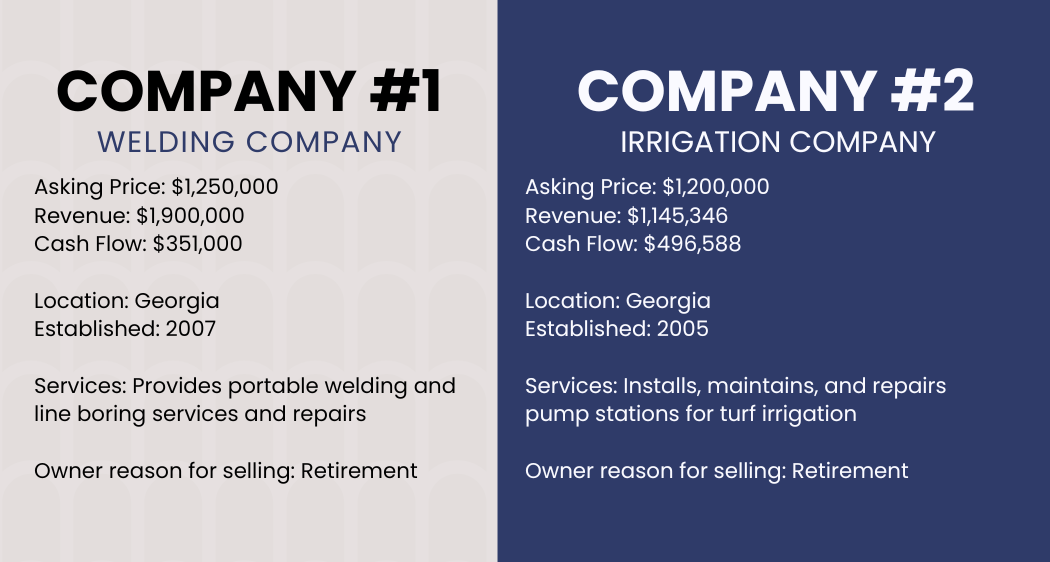Lesson 65: Vulnerability
Source: BizBuySell.com
Which company would you acquire? There is no wrong or right answer, but ask yourself which business you would like to own. On the left, there is a welding company selling for $1.3 million with $351,000 in cash flow. On the right, there is an irrigation company selling for a similar price, $1.2 million, with $496,588 in cash flow. Both have operated for ~20 years, and now the owner is ready to retire so they are selling the business. When deciding where to invest your own time and money, this itchy feeling creeps up your sleeve called vulnerability.
This first year in business school, I often felt vulnerable. Choosing classes, networking opportunities, summer internship, social events, and leadership positions all required an intentional decision-making map in my mind. My decisions were often guided by how each choice aligns with my pursuit of Entrepreneurship Through Acquisition. When looking at these two businesses, the list of what I want becomes more detailed. I want a motivated seller, high recurring revenue, great reputation and strong cash flow. Both businesses check some of these boxes, but I still feel vulnerable because I need to learn much more about them before making this investment.
When deciding on a business, you need to get to know the owner. There are 33.2 million small businesses in the U.S., making up 99.9% of all businesses in the country. Many of these business owners are in a similar position: Ready to sell so they can retire. Once a business owner is ready to sell their business, they might hire a broker or list their business on a website such as BizBuySell. They are contacted by dozens if not hundreds of buyers, like myself. They have several options and so do buyers. As vulnerable as I feel placing a literal million-dollar bet on a business, sellers also feel vulnerable when handing over the keys to their company to someone else.
As I learn more about ETA, I realize vulnerability is a part of the seller's journey as much as it is a part of mine. Kevin Bussolini spoke to my class about being open about the issues and interests with people: “Ask for what you want.” He is the Director of Network Management at Aetna and negotiates contracts with hospital networks in New York City. His advice at first glance seems aggressive but when employed allows the hospitals to know what Kevin needs to agree on a contract. In return, this encourages an equal amount of transparency about their interests. This makes Kevin (and the hospitals) successful as negotiators. When buying a business, the more transparent and vulnerable I am with sellers, the more we can figure out if this is the right match.
My values are to act with love, humility, and wisdom. Love can be established with vulnerability. As I establish relationships with sellers, customers, employees, and investors, I need to lean into the vulnerability to “sell” myself and my vision. As sellers evaluate the many suitors interested in their business, I will stand out with my level of vulnerability. Being open about who I am and what I want will allow the seller to quickly understand if I am the right buyer. These sellers often love their business because they spent 20+ years building it, like these businesses above. Now that they are ready to retire, they want to know the next owner will love it too. And whether it's the legacy forged in the welding shop or the customer relationships grown by the irrigation company, finding the business I would love to own begins with the courage to be vulnerable.
This is Lesson 65: Vulnerability. Next week is Lesson 66: Confidence.
